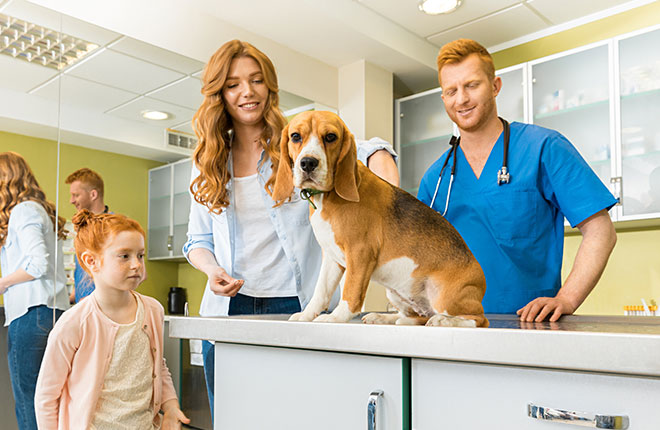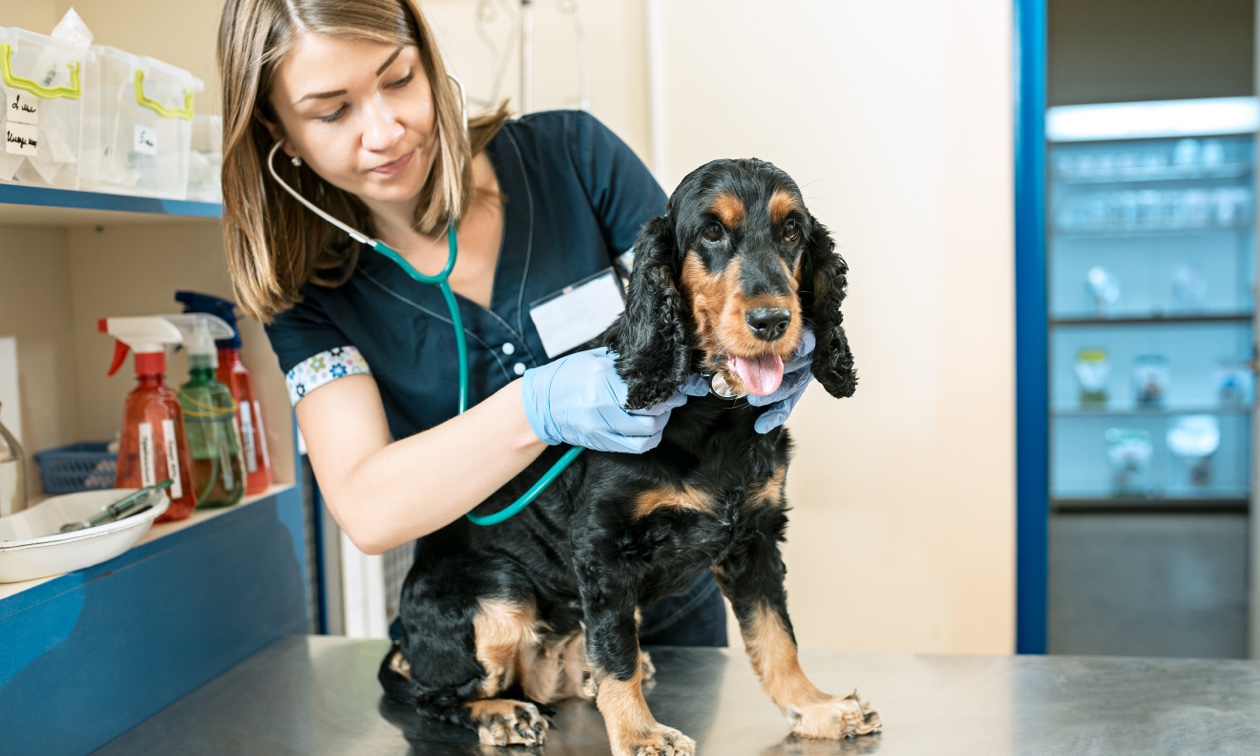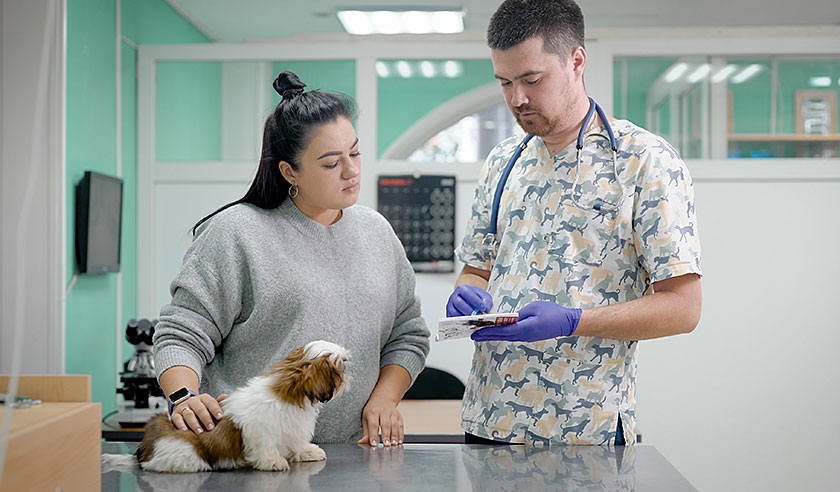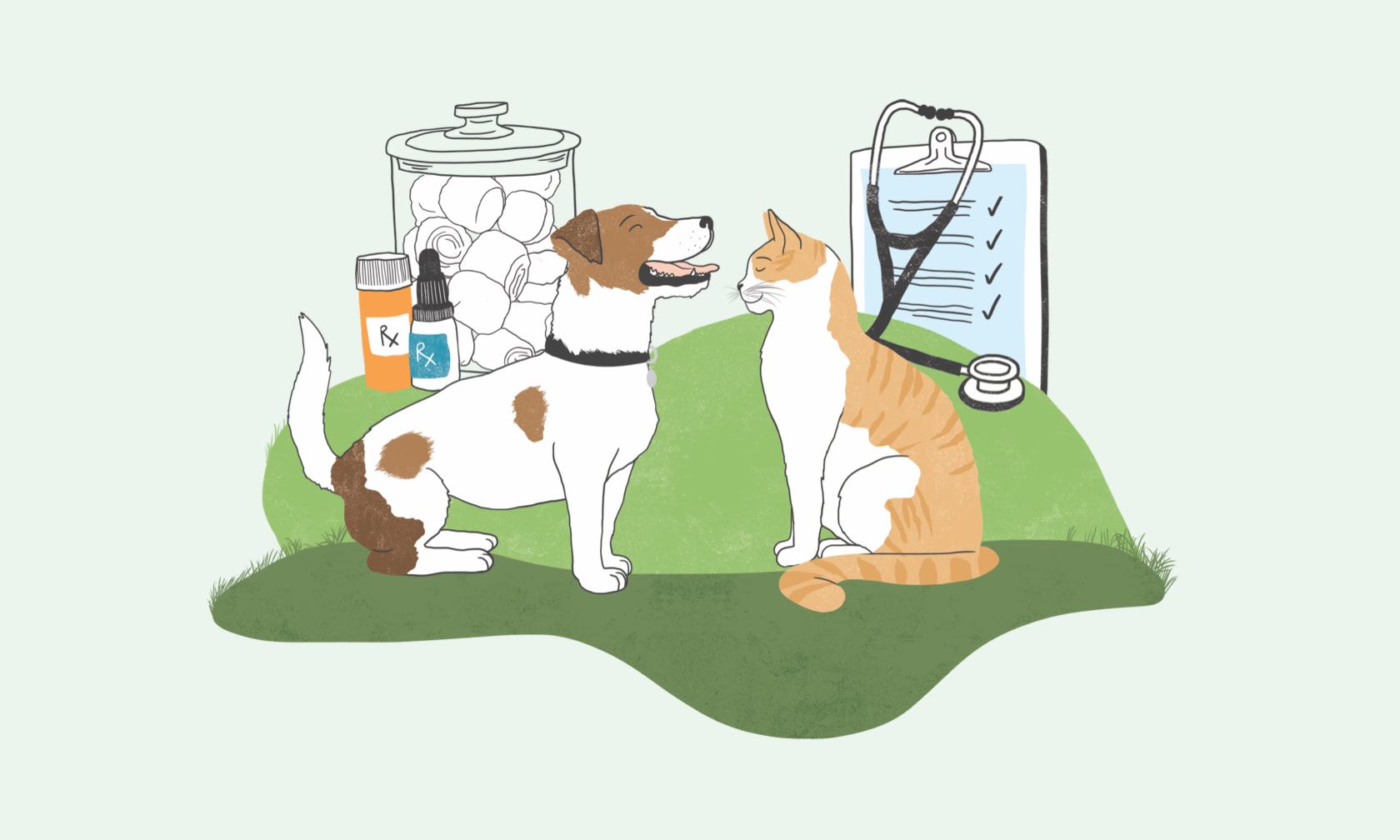Once you get your newly adopted pet home and start to get them settled, it’s time to get them in for a wellness exam at the veterinarian. Ideally, this happens within the first week of coming home. This visit is a great time to help your dog or cat have positive associations with trips to the vet so they don’t develop life-long fears.
Not only does this help to establish a positive association with the veterinary practice, but your veterinarian will check to ensure your newly adopted pet is healthy. They’ll establish a health baseline, which helps them to monitor your pet’s health and alert them early if something goes wrong.
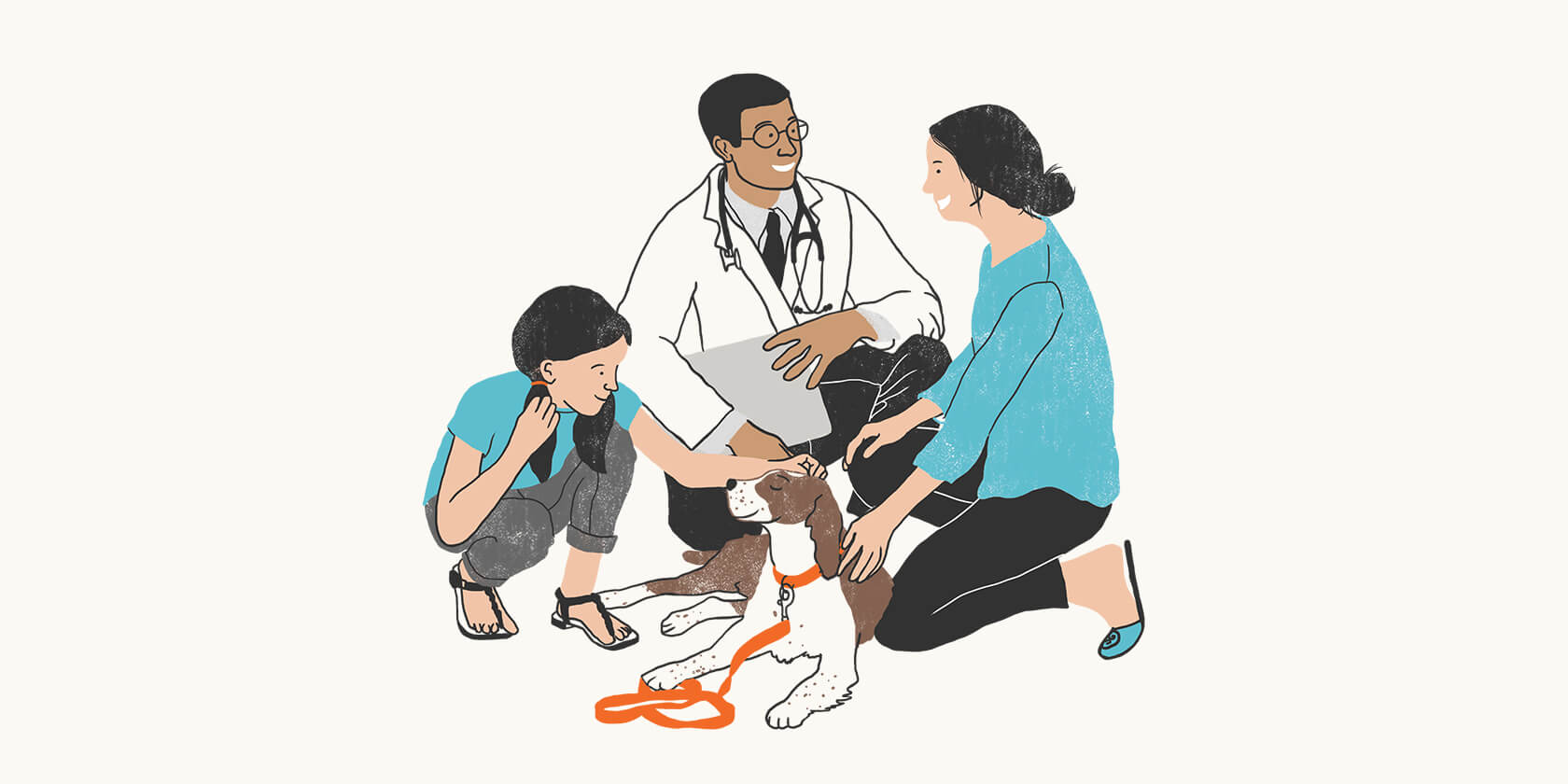
What to expect at your pet’s first vet visit
The first visit is different than future visits because your veterinarian will take time to get to know your pet’s medical history, do a more thorough examination to help establish your adopted pet’s normal, and discuss ways to keep them healthy.
Review of medical records. Medical records can help alert your veterinarian to any preexisting conditions that your pet has, and any care that they have received before. Remember to bring their records to the visit if you have them!
Thorough physical exam. Your veterinarian will check your cat or dog’s eyes, ears, heart, lungs, and a whole bunch more. This helps to make sure your pet is healthy and establishes what’s normal for your pet. Because every pet is unique, this baseline will help with future vet visits, often saving you time and money.
Lifestyle discussion. Your vet will likely talk to you about your new pet, how best to take care of them, and how to integrate them into your home. This is your opportunity to ask any questions you have about your new dog or cat. Write them down before your appointment to make sure you don’t forget anything!
Parasite prevention. Preventing fleas, ticks, heartworms, and internal parasites will help to keep your pet healthy. Your veterinarian will recommend a parasite prevention protocol, which may include oral medication, injections, or topical applications.
Diagnostic testing. Your veterinarian may want to test your pet’s stool for evidence of intestinal parasites like worms, coccidia, and giardia. Veterinary staff will let you know if you should bring a stool sample to the appointment. Typically a sample the size of your thumb is enough.
Vaccines. Depending on what vaccinations your pet received before getting adopted, your veterinarian may recommend additional vaccines to protect them from disease.
Spay or neuter discussion. If your pet wasn’t neutered at the rescue or shelter, or if they are too young, your veterinarian may discuss when to schedule the procedure.
Adult dog or cat’s first vet visit
Oral health discussion. Your veterinarian may recommend a dental cleaning procedure, depending on your pet’s oral health. Either way, they will likely outline and guide you on an at-home oral health care routine for your new dog or cat.
Diagnostic tests. Depending on your pet’s age, health status, or medications they are on, your veterinarian may recommend additional blood or urine diagnostic testing.
Weight and diet. If they are not at a healthy weight, your veterinarian may discuss steps to take to get your cat or dog to a healthy weight. If you’re thinking about changing your dog or cat’s diet, talk with your veterinarian about how you can minimize digestive upset during the transition.
First puppy vet visit
A puppy’s first vet visit may also include discussion about socialization and training in addition to the general items above.
Vaccine schedule. Depending on your puppy’s age and how many rounds of shots they’ve already received, your veterinarian will provide a schedule of remaining puppy shots they’ll need to keep them healthy.
Socialization discussion. Socialization is so important for your puppy to grow into a confident dog. Your veterinarian may talk with you about puppy socialization classes or give you ideas of things to expose your puppy to (like people, vacuums, floor surfaces, etc.) during their crucial imprint period.
Training discussion. Your veterinarian may talk about the important skills for your puppy to learn or offer suggestions for classes and dog trainers you can work with.
First kitten vet visit
The first kitten vet visit is a great time to start desensitizing them to their carrier and helping them have a positive experience at the vet practice. This visit may also include kitten-specific items in addition to the general list above:
Vaccines. Depending on your kitten’s age and how many rounds of shots they’ve already received, your veterinarian will provide a schedule of remaining cat vaccines they’ll need to keep them healthy.
Blood tests. If your kitten wasn’t previously tested for FeLV (feline leukemia virus) or FIV (feline immunodeficiency virus), a feline retrovirus blood test will likely be recommended.
Socialization discussion. Your veterinarian may offer suggestions on how to socialize your kitten to new people, animals, and environments.
ZPC-00595R1
